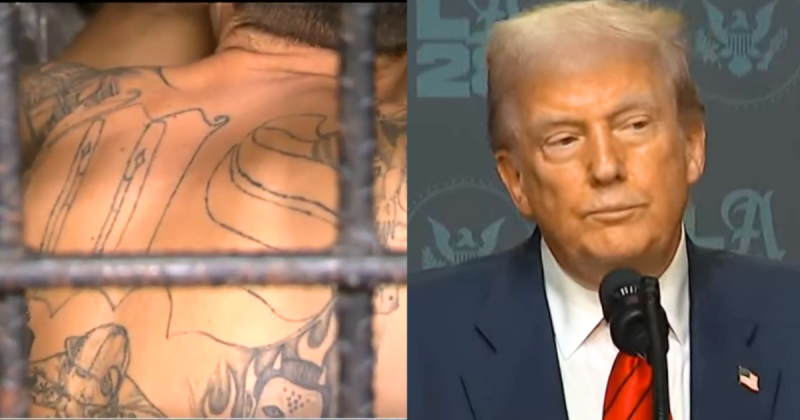Oscar Contreras Aguilar, a convicted former MS-13 gang member serving a 21-year prison sentence for charges related to the abduction and murder of a 14-year-old child, has filed a federal lawsuit against the Trump administration, alleging “gender discrimination.”
Contreras Aguilar claims that the Bureau of Prisons (BOP) has denied him access to “gender-affirming” items and services, which he says has contributed to worsening mental health conditions.
The civil rights complaint states that the inmate has been refused items including shaving supplies, makeup, hair accessories and social support.
The complaint traces Contreras Aguilar’s gender dysphoria back to his early teenage years.
According to Reduxx, which first reported the complaint, the document states, “Inmate Contreras Aguilar also reported growing up in an environment where she was surrounded by ‘female energy’ in her community, mostly through family members her age and being raised by maternal figures.”
“While this does not directly add to her gender dysphoria diagnosis, she reflected having strong feminine experiences around her as a child, including ‘dressing up as a girl.’ She noted this felt ‘comforting.’”
On June 20, Contreras Aguilar filed the lawsuit seeking a temporary restraining order to prevent male guards from conducting strip searches on him.
The suit also challenges an executive order barring male convicts from being transferred to women’s prisons.
The lawsuit argues that President Trump’s “Defending Women from Gender Ideology Extremism and Restoring Biological Truth to the Government” executive order discriminates on the basis of sex.
It contends the order has restricted access to female undergarments and cosmetics such as lip gloss, makeup, lipstick, hair dye, bras and panties, as well as hormone replacement therapy, placing him at an alleged increased risk of serious harm or suicide.
Prior to the executive order, Contreras Aguilar says the BOP, including USP Coleman 2, allowed trans-identifying men access to female undergarments and cosmetic products through commissary purchases.
“That is no longer the case,” the complaint reads, as noted by BizPac Review.
This lawsuit is part of a broader series of legal challenges filed by trans-identifying inmates, addressing access to “gender-affirming care” and housing accommodations in federal prisons.
Although the federal complaint details Contreras Aguilar’s personal history and claims, no court ruling has been issued. The Department of Justice has not publicly responded to the filing.
The case highlights ongoing tensions between federal prison policies, executive directives and the legal rights claimed by trans-identifying inmates.
Questions remain regarding compliance, safety and administrative authority within correctional facilities.
Legal experts note that federal prisons have historically limited certain services based on security and classification, and that executive orders can significantly shape facility policies.
Challenges like Contreras Aguilar’s are closely watched as potential tests of the rights of transgender inmates under current law.
Contreras Aguilar’s background as a convicted MS-13 gang member adds a high-profile element to the lawsuit, drawing national attention to the intersection of criminal justice, “gender identity” and federal policy.
Prison administrators and authorities are monitoring the case, which could influence how “gender-affirming” treatment and housing are managed across the federal prison system in the future.
The outcome may affect both inmate rights and operational policies nationwide.

